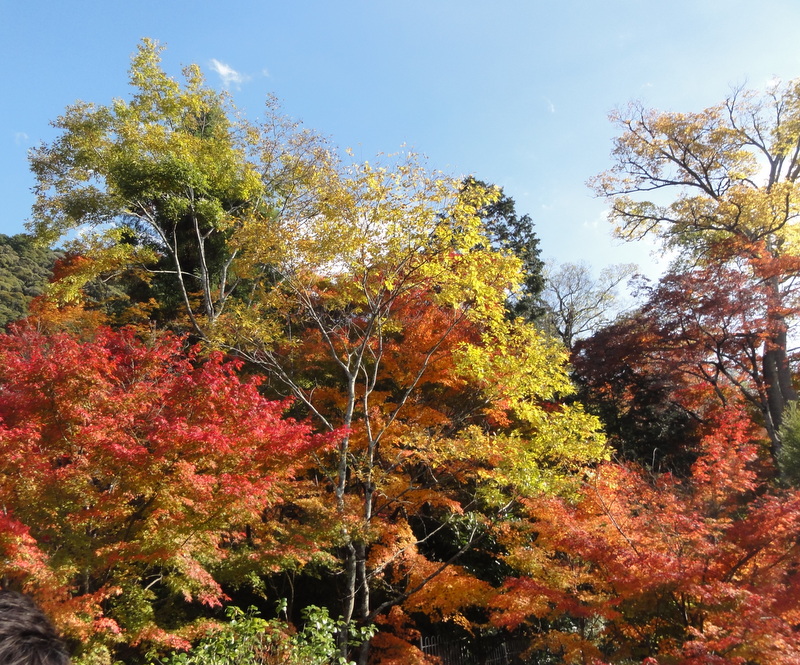Good morning and Happy New Year!
In Japan we say, “Through Jan. 7, within Matsunouchi.” Matsu stands for pine trees and in this case refers to a New Year’s decoration (matsu-kazari, pine decoration) set up at the gates of houses – pine branches mixed with bamboo and plum branches. So, we are still within the New Year days.
Did you have a happy new year? Yesterday I upgraded my cell phone to a smart phone and tried its navigation system. I said “Missouri Zen Center,” and it showed the route with an arrow. Nori is back home and connected my laptop to our desktop computer, making its capacity three times greater.
I can now use my smart phone and computers more conveniently, quickly, freely, and fully. These commodities are convenient, but they are costly in terms of materials, money, labor, time, ecology, etc. So, Nader Rader said, “I avoid 3 Cs – credit cards, cars, and chain saws.”
Credit cards cause fiscal cliffs, financial cliffs, etc. Cars create carbon dioxide, consumerism, consumption, etc. Chain saws see ecological degradation, environmental destruction, etc. These represent commodities, conveniences, and civilizations, bringing competition, contrivance, and collapse.
It is easy to understand and create the global problematique – intertwined problems such as wars, global warming, mass extinction. We must face the impermanence, suffering, and substancelessness of them (three Dharma marks). These are not true treasures, but false treasures.
We have the true treasures of Buddha, Dharma, and Sangha. Sangha means guild, not of money making, but of buddha-bodhisattvas. This is pursuing truth, awakening, and an awakened community with all beings, not only humans, but animals, plants, and all ecological systems.
Civilization (urbanization by deforestation and destruction of eco systems) starts from delusion, desire, and divisiveness and ends in materialism, militarism, and moneyism. So, we must pursue culture by cultivating the land and ourselves through cooperation, communication, and construction, to create the true Sangha.
So, we need turn our sights from outside, others, to inside, ourselves. The Buddha said, “Better than those who would conquer thousands upon thousands in the battle fields are those who would conquer one’s self. That is the true war conqueror.”
Only in this way can we find the true treasure, which never decays, becomes deprived of the true self, and destroys others. We must construct compassion, friendship, joy, and equanimity (the four Brahma-vihâra or limitlessnesses) in the Dharma (form/norm/truth) of Dependent Origination.
Equanimity literally is “throwing away” (upekhâ in the Brahma-vihâra). Equanimity is in throwing away, as nothing is ours (“Not yours!: Na tumhâkam!”), and eventually we must throw away all in the world of impermanence due to the Dharma of Dependent Origination/Cessation.
Possession is possessedness. Whatever we possess – matter, might, or money – we are possessed by it. When we do not possess and are not possessed, we are in equanimity. This sees and serves others with sameness, beneficial actions, loving words, and giving (the four embracing matters).
We cultivate the four Brahma-vihâra and the four embracing matters in the limitless Dharma world, by sitting and stopping karma (nibbâna: nirvâna: no karma-wind blowing). This sitting and stopping karma is essential in the paradigm shift from civilization and urbanization to culture and cultivation.
When we sit, we stop our karmas (Karma realm), go back to nirvana, see the Dharma there, become awakened (buddha), and build the true Sangha. We can and must cultivate ourselves in this interdependent Dharma world, enjoying limitless life, light, liberation, love, and learning – endless cultivation.
1/6/13

